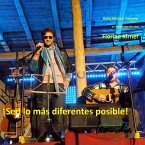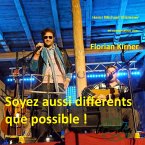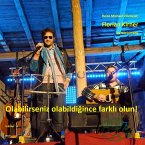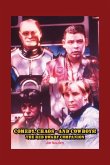Celebrating the album's 25th anniversary, the journalist and critic José Teles reviews the trajectory of the record that transformed Brazilian music by inserting its "satellite dish" of samples and heavy guitars into the popular rhythms of Pernambuco: Da Lama ao Caos (From Mud to Chaos) by Chico Science & Nação Zumbi, released in April 1994. A music columnist at Jornal do Commercio in Recife since 1987, Teles was an eyewitness to the birth of the album and the manguebeat scene, headed by Chico Science & Nação Zumbi and Mundo Livre S/A. In the book he interviews musicians, producers, managers, record label executives, designers, photographers and journalists to retell the story and behind-the-scene details of the record that put Recife - the "fourth worst city in the world" according to a 1991 UN report - at the center of the Brazilian cultural scene of the 1990s. The book is the first volume of the Brazilian Music Records series. In Teles's words: "Contemporaneity was starting to show its face, coming from the least expected quarter. Until then, musical movements in Recife had sprung from the city's middle class or elite. The exception stemming from the city's outskirts, which was never really a movement, was frevo, born from the people but already gentrified by the 1960s. The movement that emerged to 'contemporaneize' Pernambuco music was a metaphor of the mangrove swamp, the crab men, who gathered their arsenal of ideas on Rua da Aurora in the downtown area of the capital of Pernambuco, in buildings located in a stretch that can be viewed as an emblem of the city's stagnation." Further on he continues: "No one could imagine that this group, which called itself "crabs with brains", played to small audiences and exchanged ideas in trendy bars, would smash boundaries, borders and frontiers to reinvigorate Pernambuco culture, influence Brazilian music and achieve international recognition." The group's guitarist, Lúcio Maia, states to the author in the book: "I think Da lama ao caos is a great album, better than Afrociberdelia [the band's second album], because Chico, I, Jorge, Gilmar, everybody had an entire lifetime to think about it". The Brazilian Music Records series, published in Portuguese and English, is edited by the music critic Lauro Lisboa Garcia.
Dieser Download kann aus rechtlichen Gründen nur mit Rechnungsadresse in A, B, BG, CY, CZ, D, DK, EW, E, FIN, F, GR, H, IRL, I, LT, L, LR, M, NL, PL, P, R, S, SLO, SK ausgeliefert werden.









